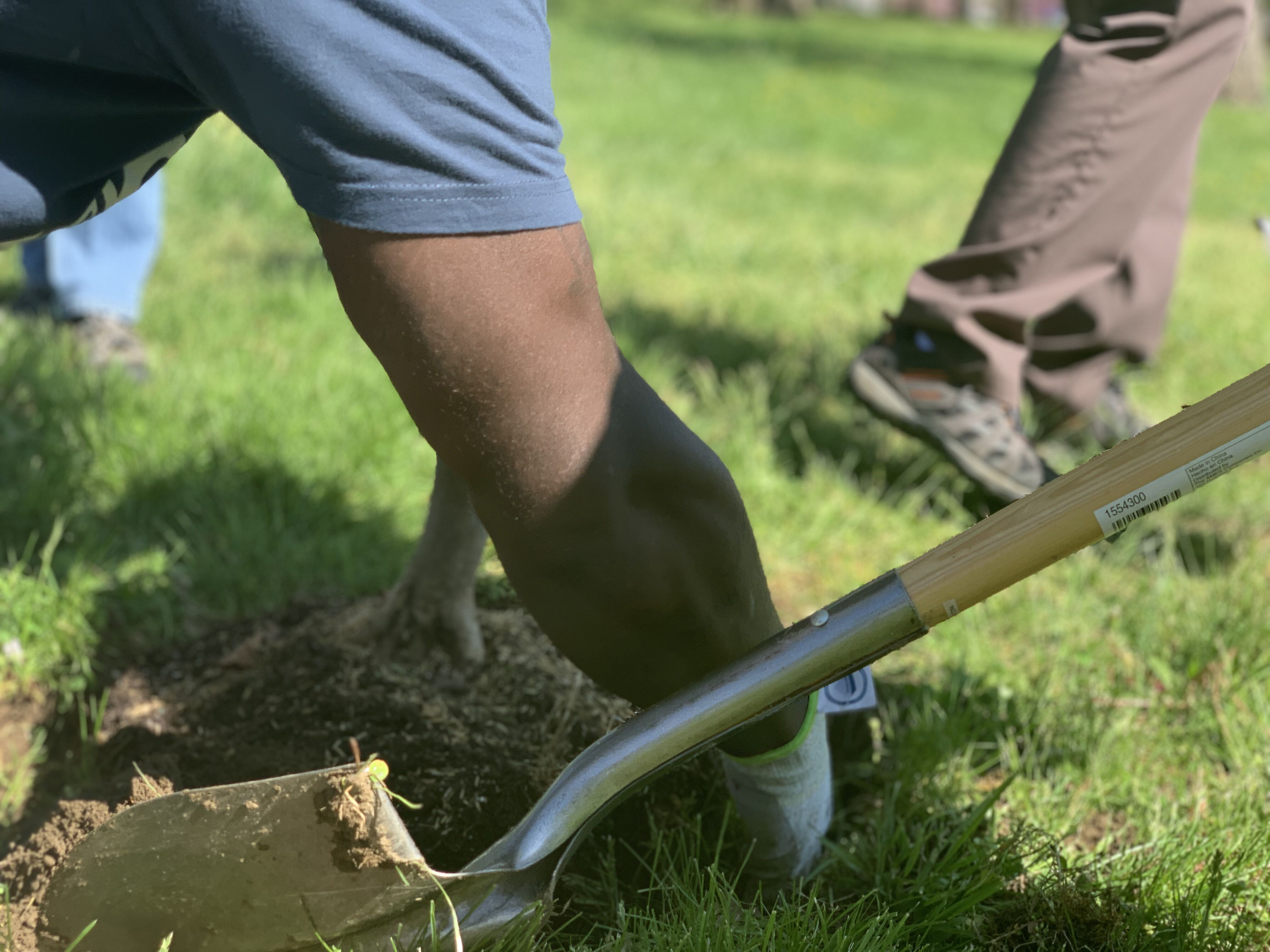American Forests and Bank of America to Plant Trees in Houston
American Forests and Bank of America will be in Houston on Saturday, October 19th, to plant trees at J. R. Harris Elementary School. The event aligns with the goal of American Forests, Bank of America and the City of Houston to create Tree Equity—trees in every part of every city, not just high-income neighborhoods.
“Too often we just treat urban forests like scenery, when in fact they are critical life-or-death infrastructure for the health, wealth, and well-being of people in cities,” said American Forests President and CEO Jad Daley. “With partners like Bank of America, we can change that so everybody benefits from the many ‘services’ trees provide to us.”
Trees and green spaces are essential for urban sustainability and livability. Besides cooling the environment, they contribute to improving air quality, keeping our drinking water clean, and more.
“Our environmental commitment is especially important in urban areas like Houston where tree populations are facing pressure as the city continues to develop,” said Hong Ogle, Houston Market President, Bank of America. “Our partnership with American Forests enables us to give back to the city while also educating the community about how we can improve our environment.”
Planting trees at the school aligns with Houston Mayor Sylvester Turner’s Complete Communities initiative, which aims to improve neighborhoods so everybody in the city can have access to quality services and amenities. Magnolia Park, which is where J.R. Harris Elementary School is located, was in the second round of neighborhoods selected for this initiative. The neighborhood was named for the 3,750 magnolias that developers planted there.
On Saturday, approximately 25 more trees will be added to the mix between 9 a.m. and noon. Students from the school, as well as their families, will participate in the event.
Urban areas are the focus of American Forests’ longstanding partnership with Bank of America. Bank of America helped launch American Forests’ urban program, Community ReLeaf, in 2012. The program is dedicated to the assessment, restoration and monitoring of urban forests in the U.S.
Through this partnership, Bank of America has, among other things, helped launch a city-owned enterprise in Baltimore, Maryland that processes and sells wood categorized as waste and transform a vacant lot into Detroit, Michigan’s first outdoor education center. Earlier this month, the company joined forces with American Forests and several Boston-based partners to plant 100 native trees in a park in Boston, Massachusetts.
###
About American Forests
Founded in 1875, American Forests is the nation’s oldest conservation organization dedicated to protecting and restoring America’s forests, but our work today is more important than ever because forests are a natural climate solution. Since 1990 alone, we have planted over 60 million trees in forest restoration projects in all 50 U.S. states. We have also worked in dozens of cities across America, expanding tree canopy and making our communities more sustainable, beautiful, and livable. Together, these projects recover hundreds of thousands of acres of wildlife habitat, safeguard vital watersheds, absorb millions of tons of greenhouse gases and protect some of the most stunning landscapes in America.
About Bank of America
At Bank of America, we’re guided by a common purpose to help make financial lives better, through the power of every connection. We’re delivering on this through responsible growth with a focus on our environmental, social and governance (ESG) leadership. ESG is embedded across our eight lines of business and reflects how we help fuel the global economy, build trust and credibility, and represent a company that people want to work for, invest in and do business with. It’s demonstrated in the inclusive and supportive workplace we create for our employees, the responsible products and services we offer our clients, and the impact we make around the world in helping local economies thrive. An important part of this work is forming strong partnerships with nonprofits and advocacy groups, such as community, consumer and environmental organizations, to bring together our collective networks and expertise to achieve greater impact.
